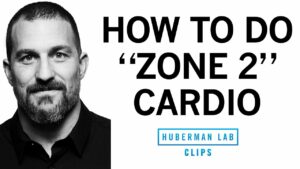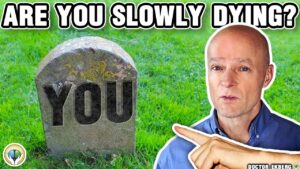In this video, Dr. Whitney Bo, a board-certified dermatologist, answers questions about skincare from the internet. She addresses the safety of popping pimples and advises against doing it at home, but suggests using a comedone extractor if necessary. She also discusses the use of cotton swabs as an alternative, emphasizing the importance of gentle pressure. Dr. Bo then talks about dermaplaning, a skin-shaving technique, and advises caution while performing it. She highlights the importance of using light strokes and not overdoing it. Finally, Dr. Bo emphasizes the need for personalized skincare advice from a medical professional.

Our Summaries are written by our own AI Infrastructure, to save you time on your Health Journey!
Key Insights
- Dr. Whitney Bo is a board-certified dermatologist known for her TikTok and Instagram presence.
- She has been a medical doctor for 15 years and a practicing dermatologist for over 10 years.
- Dr. Bo recommends against popping pimples at home, but understands that many people still do it. She advises using a comedone extractor if attempting to pop a pimple at home, but emphasizes the importance of gentle pressure and stopping if it doesn’t work.
- Cotton swabs can be an alternative to a comedone extractor for gentle pressure, but Dr. Bo doesn’t recommend using them for pimple popping.
- Dr. Bo discusses dermaplaning, which is scraping away the uppermost layers of the skin along with peach fuzz using a single blade. While she generally doesn’t recommend it, she can understand its usage for those who are bothered by visible peach fuzz. Precautions include using light strokes, not doing it too often (ideally once every 1-3 weeks), and avoiding dermaplaning over active acne lesions.
- Using hot water and a paper towel to wash the face is not recommended, as the skin doesn’t love hot water.
- It is always advised to consult a doctor for any medical advice regarding skin issues.
Transcript
All right, we’re talking skin, people. Dr. Whitney Bo is a board-certified dermatologist based in New York. You might have seen her on her TikTok and Instagram, where she’s known for that „Bo Glow“.
How long have you been a doctor?
I’ve been a medical doctor for 15 years. I’ve been a practicing, board-certified dermatologist for more than 10 years. So, guys, I’ve pretty much seen everything there is to see when it comes to the skin, the hair, the nails. Right now, we’re going to go to the internet. So give us your best shot. Here is our first question from Instagram. This person writes, „I’ve seen people using cotton swabs to pop their pimples. Are cotton swabs safe to use?“
Let’s take a look at this video, which got over half a million views. As you can see, they’ve got their gloves on and they have two cotton swabs. They’re applying some pressure, and pop goes the weasel. First of all, is it even okay to pop a pimple?
For the record, guys, I don’t actually recommend popping your own pimples at home. But I know that many of you are going to take matters into your own hands anyway. So why don’t I talk you guys through what I do in the office?
So what I do is I use a special instrument. It’s called a comedone extractor. So if you guys are going to do this at home, which again, I don’t recommend, what you want to do is first, you want to clean the area. You want to also clean your tool, right? So with alcohol, that’s the best way to get it nice and sterile. And then what you want to do is you put this little loop on one end. You want to center that around the lesion, and you want to press gently. And that’s the key word, Renata because if you press gently and it pops, hopefully, you caught that on film because you will become an overnight TikTok sensation.
These people talk about, don’t encourage them.
Well, you don’t want to do what you don’t want to do is you don’t want to keep digging if it doesn’t pop with gentle pressure. You want to put the tool down and walk away. Walk away.
All right, all right. So got it, but what about those cotton swabs?
Okay, so the Q-tip technique, I don’t have this here. Comma don’t extract it. You may not have this at home, which I highly recommend not getting at home. You may have some Q-tips, and that’s a good alternative because what you want to do is you want to sort of mimic that same action that the comedone extractor is doing, which is basically putting pressure down and in. But the same holds true for the Q-tips. What you want to do is if you apply gentle pressure and it’s not popping, walk away. Walk away. Walk, walk away.
All right, question number two is about something that’s been popping up more on TikTok, popping up. Who wrote that? I call it skin shaving. And this next person wants to know, is this safe to try at home kind of thing?
Now, to me, this sounds like it could get dangerous really quick. I’ve seen so many terrifying fails on social media. Dr. Bo, like this video right here where someone shaved their eyebrows off, go on. Or this video of someone who ends up with cuts all over their face, just all over their faces.
I feel for this girl, pressed a little too hard.
My goodness. Yeah, Dr. Bo, break it down. Why are people doing this? What is going on? Is it safe?
So, this is something called dermaplaning. So, dermaplaning is when you take a single blade, okay, and you basically scrape away the uppermost layers of your skin, along with your peach fuzz, what we call vellus hairs. Now, we’re not overall, I’m actually not a big fan of dermaplaning. But I can get behind this if you’re somebody who really just can’t live with your peach fuzz. There are people out there that really have, and it’s really visible, too.
Yeah, you really see it, and it’s on the upper lip and on the sides of the face. It’s driving them crazy. They’ve tried everything else out there. So, I can get behind dermaplaning for the peach fuzz, for those peach fuzz sufferers, if you take certain precautions.
Okay, so if you’re dermaplaning, precaution number one, you want to use light, short, feathery strokes. You don’t want to press too hard. That’s when you can actually damage what’s called the skin barrier. Precaution number two, you don’t want to do this that often. You don’t want to be dermaplaning more than once every like one to three weeks. That’s pretty safe. If you’re doing this a couple times a week, no bueno, not okay for the skin.
And the other thing to keep in mind with dermaplaning is if you guys have a breakout. If you have active acne lesions on your skin, you do not want to be dermaplaning on top of those lesions. You can do some serious harm.
Gotcha. That makes sense. You don’t want to open, make that an open sore, exactly, lead to dark marks, lead to scars. You know, it’s basically you’re creating a wound. Not a good idea if you have acne.
Dr. Bo, let me tell you something. Okay. I am new to the skincare game. I used to do a hot water paper towel to wash my face every morning, and that was it. I have amazing skin, as you say. So, this woman is obviously genetically blessed. Don’t try the hot water paper towel method at home, okay, guys? Doesn’t sound great. Our skin doesn’t love hot water. I mean, your skin is glowing. It’s gorgeous. So, clearly, she doesn’t need my help.
But alright, comment below with your pressing health questions, and of course, hit subscribe here to the health channel to get more answers from medical experts on the questions you want to know. Dr. Bo, thank you so much for joining us, for answering all the health questions from my audience. We appreciate you.
All right, everyone, remember to see your doctor for any medical advice for your skin issues. Now, these skin tags, can you take a look at this one? I mean, it’s back here. It’s actually under my arm. Let’s go back there.





